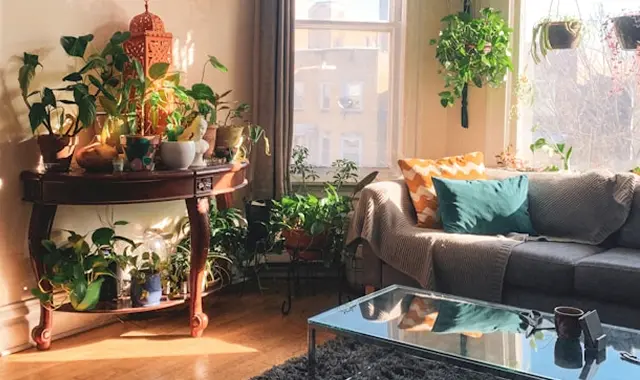Being a highly sensitive person (HSP) can feel like navigating life with the volume turned all the way up. Loud noises, bright lights, crowded spaces, and even emotionally charged conversations can feel overwhelming. But being sensitive isn’t a flaw—it’s a trait. One that often comes with deep empathy, creativity, and emotional intuition. Still, the world isn’t always built for sensitivity, and over time, that can take a toll.
I didn’t always know I was a highly sensitive person. I just thought I was someone who got overwhelmed too easily or needed more time alone than most. It wasn’t until a therapist gently pointed it out—after I described how draining loud, crowded social settings felt to me—that it all started to make sense. Things like choosing an Uber ride over the train, even if it cost more, weren’t about being fussy. They were about preserving my energy. The 40 minutes I’d spend on a packed train, overstimulated and anxious, was a cost I quietly paid until I realised I didn’t have to.
Understanding this about myself gave me permission to rethink how I moved through the world. And with that came small, intentional changes—gentle habits that made everything feel a little more manageable.
Here are a few that have helped, in case they help you too.
1. Start Your Day Without Noise
For HSPs, how the day begins can set the tone for everything that follows. Waking up to loud alarms, checking emails immediately, or diving into group chats can create a low-level stress response before you’ve even had your coffee.
Try this instead: Once you wake up, give yourself 15-30 minutes of quiet—no notifications, no conversations. Whether you spend that time stretching, sipping tea, or just sitting in stillness, let the day begin gently. It’s a small habit, but it can ground your nervous system and prepare you for the day ahead.
I even changed the tone of my alarm to something softer and less jarring. That small tweak made a big difference in how I ease into the morning.
It may not seem like much, but that early moment of calm can really ground your nervous system and prepare you to move through the day with more clarity and steadiness.
2. Create a Sensory-Friendly Space
It took me a while to realise this but, your environment matters. As a highly sensitive person, you are not just noticing your surroundings—you are absorbing them. HSPs are deeply affected by lighting, texture, noise, and clutter. While you can’t always control the setting you are in (such as at work, a cafe, or on public transit), you can create a space that feels safe and soothing.
For me, that meant being intentional with spaces I come home to. Having at least one sensory-safe space—like your bedroom or a cosy corner of your living room—can shift your entire nervous system into a calmer sate.
My favourite simple tweaks that help:
- Use warm, soft lighting instead of harsh white lights
- Choose texture that comfort you—think of soft blankets, breathable sheets or a sweater you always reach for
- Keep clutter to a minimum; visual calm supports mental calm
- Consider sound—noise-cancelling headphones, white noise, or calming playlists can all help buffer external stress
It’s a quiet kind of support, but it adds up. The space around you doesn’t have to be perfect—it just needs to feel like yours.
3. Take Intentional Screen Breaks
HSPs often absorb the energy of what they consume. Scrolling through emotionally intense news, chaotic videos, or even highly stimulating content can leave you feeling drained without realising why.
Instead of endless scrolling, try screen breaks throughout your day:
- A 5-minute walk without your phone
- Looking out a window while taking a deep breaths
- Reading a physical book or journaling
These breaks aren’t about productivity—they are about regulation. They give your nervous system a chance to reset.
4. Honour Your “Social Battery”
Highly sensitive people tend to feel deeply connected in one-on-one conversations or small groups, and larger social events or extended outings can be exhausting. You might enjoy being with people, but still need extra time to recover afterward.
It took me some time to understand that needing space after socialising wasn’t antisocial or dramatic. It was just how I recharge. I started paying attention to how different social situations affected me. After brunch with friends, did I need the rest of the day to myself? Were back-to-back plans—even if they were fun—quietly draining me?
These are the questions I now ask myself:
- Will I have time to decompress afterward?
- Do I genuinely want to go—or do I feel obligated?
Making peace with your social battery—and planning around it—makes life more sustainable. It lets your enjoy connection without burning out from it.
5. Use Gentle Language With Yourself
Many HSPs are also highly self-critical. That inner voice can be harsh, especially when we feel like we are “too sensitive” or “overreacting.” But reframing that voice is one of the kindest habits you can develop.
Instead of saying:
- “why am I like this?”
- “I should be able to handle more.”
Try:
- “It make sense that this felt like a lot.”
- “I’m allowed to need more care.”
Self-talk shapes your inner world. And the way you speak to yourself matters more than you think.
6. Build Gentle Transitions Into Your Day
I often found myself struggle with abrupt shifts—from working to socialising, from being out to being home, from busy to still. Transition periods are where overstimulation can peak. And for a highly sensitive person, that can mean carrying stress into the next part of your day without even realising it
Try building buffers between different parts of your day, I like to keep it simple:
- I stretch for 10 minutes after work before jumping into dinner plans
- When walking home from the train station, I notice the pace—when I catch myself rushing, I slow down
- I put on some classical jazz instrumental music when I’m winding down in the evening
These soft transitions help your brain and body catch up with each other. They are not about productivity—they are about regulation. Creating little bridges between moments can make your day feel less like a race and more like a rhythm.
7. Let Yourself Feel Without Needing to Fix
As a highly sensitive person, you might feel emotional waves more intensely than others. Sad movies linger. An offhand comment stays with you. You might cry more often—or feel everything more deeply. That’s not something needs fixing. That’s part of your sensitivity.
I used to push these emotions away, or not even recognise them. I told myself to toughen up, to move on, to not be “so sensitive.” But over time, I learned to do something radically different—allowing the feelings to exist. Without fixing. Without judgement.
A gentle habit: when something moves you, name the feeling. Sit with it. Breathe. Write it down. Let it pass through you instead of bottling it up or labelling it as “too much.”
The more you make space for your feelings, the less they overwhelm you.
8. Unfollow Chaos
You are not obligated to consume everything. If a podcast makes you feel on edge, if a social media account leaves you feeling drained, or if a group chat is always buzzing with drama—give yourself permission to opt out.
Curate your inputs intentionally. Follow creators who speak calmly. Engage with content that soothes instead of stirs. Let your digital space reflect the energy you want more of.
It’s not about escaping the world. It’s about protecting your energy.
Let Life Fit You, Not the Other Way Around
Living as a highly sensitive person in a fast, loud, and often overstimulating world isn’t always easy. But with the right habits, you can build a rhythm that feels kind to your nervous system. The goal isn’t to change who you are—it’s to support yourself as you are.
These gentle habits aren’t revolutionary and you may think it as a tiny acts. They are small, quiet ways to honour your sensitivity. And over time, they add up to a life that feels more manageable—and more meaningful.
You don’t need to toughen up to thrive. You just need a life that fits you softly.




